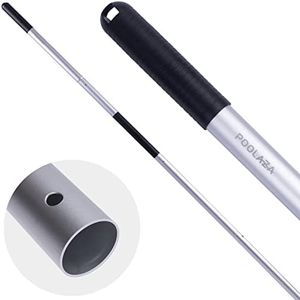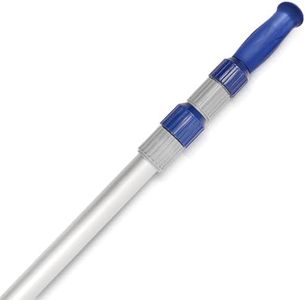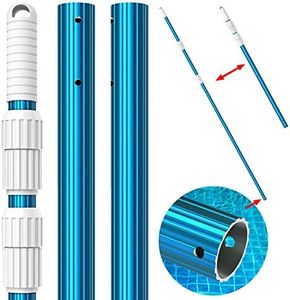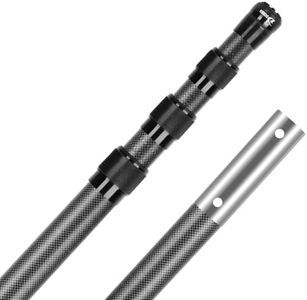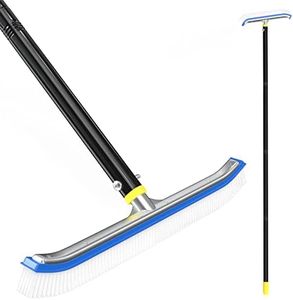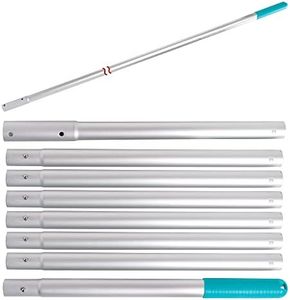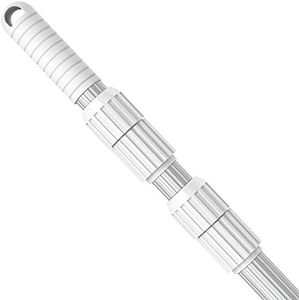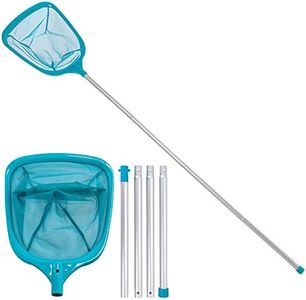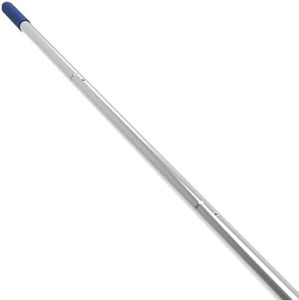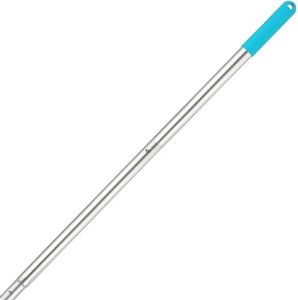We Use CookiesWe use cookies to enhance the security, performance,
functionality and for analytical and promotional activities. By continuing to browse this site you
are agreeing to our privacy policy
10 Best Pool Poles
From leading brands and best sellers available on the web.By clicking on a link to a third party's website, log data is shared with that third party.
Buying Guide for the Best Pool Poles
When choosing pool poles, you want to ensure you pick a product that makes pool cleaning or maintenance easier, safer, and more effective. Pool poles are essential tools for reaching debris, brushing walls, or attaching other cleaning accessories in your swimming pool. Since not all pools and users are the same, the right pool pole for you depends on factors like pool size, usage needs, durability, and comfort. Understanding the main features of pool poles will help you make a confident and practical choice.Length and ExtendabilityThe length of a pool pole determines how far you can reach into your pool. Some poles come in a fixed length, while many others are telescopic, meaning they can extend or retract to suit various needs. For small pools, a shorter, non-extending pole may give you all the reach you need. For larger pools or pools that are deep, telescopic poles offer flexibility, as you can adapt the length for different cleaning tasks. When selecting, think about your arm strength and the farthest point in your pool you will need to reach comfortably, and pick a pole or telescoping range that covers it.
MaterialPool poles are mainly made from aluminum or fiberglass, as these materials combine lightness with strength. Aluminum poles are lightweight, easy to maneuver, and resistant to rust, making them practical for regular home use. Fiberglass poles can be more robust and durable, standing up to heavy usage or rougher handling, but they might be a bit heavier. To choose, consider how often you clean your pool and whether you prefer a totally lightweight pole or prioritize a sturdier, long-lasting tool.
Locking MechanismThe locking mechanism refers to how a telescoping pole stays at the length you set. Common types include twist-lock and external locking levers. A good locking mechanism should be easy for you to operate and hold the pole securely without slipping or collapsing during use. Twist-locks often allow for quick adjustments, while levers may offer a more positive lock. If you plan to adjust the length frequently or have limited hand strength, choose a mechanism you find comfortable and reliable.
Compatibility with AttachmentsPool poles are designed to work with various pool attachments like nets, brushes, and vacuum heads. Most use a standard tip or connector, but some may have unique designs. Before buying, check that the attachments you already have or plan to buy will fit the pole without issues. Having a pole with a standard-fit connector ensures you can swap attachments easily and expand your pool tool kit as needed.
Grip ComfortGrip comfort means how the pole feels when you are holding and using it, especially for longer cleaning sessions. Poles with soft, non-slip handles or textured surfaces are easier to hold, less likely to slip when wet, and reduce hand fatigue. If hand comfort is important to you or multiple people will use the pole, look for designs with ergonomic grips to make cleaning less of a chore.
WeightThe weight of a pool pole impacts how easy it is to handle, especially for extended periods or by people with less upper body strength. Lighter poles are generally preferable for quick and easy maneuvering, while heavier poles may provide more durability. Consider who will be using the pole most often, and pick a weight that is comfortable to use without causing tiredness.
